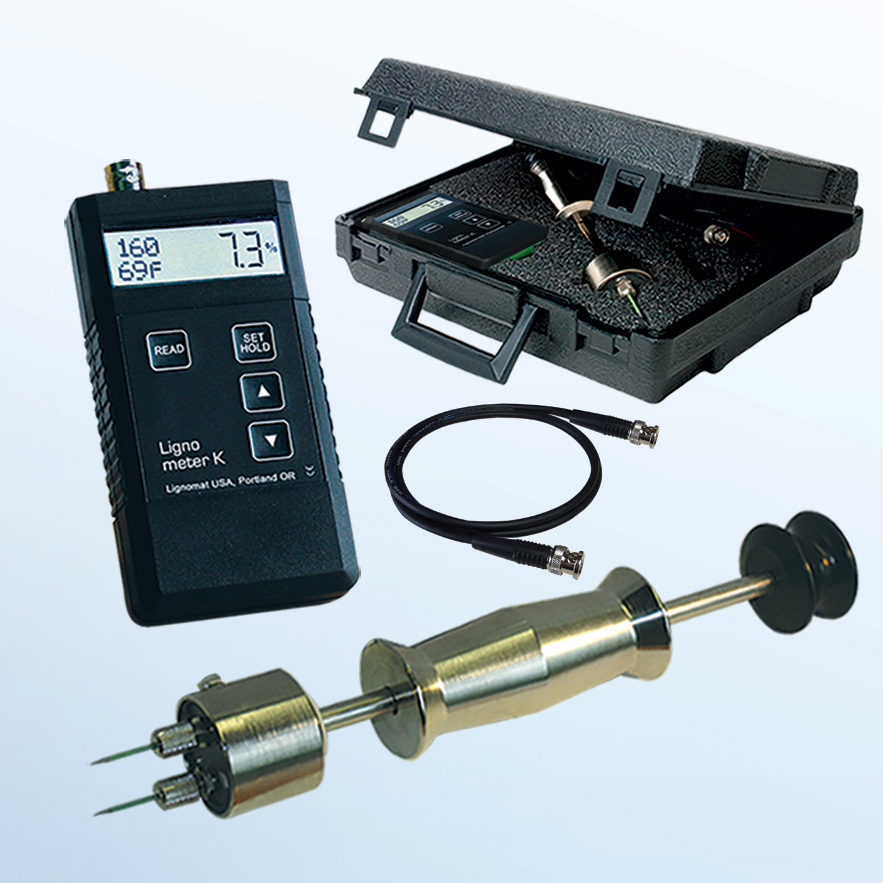How a Moisture Meter Can Help You Keep Optimum Problems in your house or Workplace
How a Moisture Meter Can Help You Keep Optimum Problems in your house or Workplace
Blog Article
The Ultimate Guide to Wetness Meters: A Comprehensive Overview and How They Can Conserve You Money
Wetness meters offer as important devices in finding and monitoring moisture material in products, aiding in stopping pricey damages and making certain the quality of products. Comprehending the subtleties of various types of dampness meters, their applications, and the potential cost-saving benefits they use can be a game-changer for companies and professionals alike.
Sorts Of Wetness Meters
One common type is the pin-type moisture meter, which determines the electrical resistance between 2 pins put right into a product. Pinless dampness meters, on the various other hand, use electromagnetic sensor plates to check a bigger location without creating damages to the material's surface.

Infrared dampness meters measure the thermal properties of a material to establish its moisture content non-invasively, making them valuable for applications where pin or pinless meters may not be appropriate. Recognizing the different types of dampness meters available can aid industries select the most ideal tool for their particular dampness measurement needs.

Advantages of Utilizing Dampness Meters
Wetness meters supply indispensable benefits in precisely examining and checking wetness degrees in diverse materials and settings. One of the key benefits of making use of moisture meters is the prevention of possible damages created by excess moisture.
Moreover, utilizing moisture meters can lead to raised power effectiveness. By identifying areas with high moisture levels, such as leakages or bad insulation, adjustments can be made to boost power conservation and decrease energy expenses. In agricultural setups, moisture meters play an important function in optimizing plant returns by enabling farmers to monitor soil dampness levels and make informed watering decisions. Generally, the benefits of making use of moisture meters span throughout different sectors, supplying cost-effective remedies and advertising much better quality assurance techniques.
Exactly How to Pick the Right Moisture Meter
Picking the proper dampness meter involves considering crucial variables such as material compatibility, measurement array, and calibration accuracy. When choosing a wetness meter, it's necessary to guarantee that the meter appropriates for the details material you will certainly be testing. Different materials have varying electric homes that can impact dampness readings, so selecting a meter developed for your material is important for precise outcomes. Furthermore, take into consideration the dimension range of the moisture meter. Ensure that the meter can spot wetness levels within the range required for your applications. Calibration accuracy is an additional essential element to remember. Choose a wetness meter with dependable calibration to guarantee consistent and specific analyses. Some meters might call for routine calibration changes, so recognizing the calibration procedure is essential. By very carefully examining these elements, you can link select a wetness meter that meets your needs and gives precise wetness measurements for your tasks.
Proper Strategies for Wetness Meter Use

Price Financial Savings Via Dampness Meter Applications
How can the calculated application of wetness meters lead to significant price savings throughout different industries? In the farming industry, moisture meters help in identifying the optimum time for gathering plants, stopping over-drying or excess dampness that can impact the last product's high quality.
In a similar way, in building and construction, dampness meters aid avoid pricey problems by detecting wetness degrees in building products, such as timber or concrete, which can cause architectural problems otherwise dealt with promptly. By determining trouble areas at an early stage, contractors can take restorative actions to avoid substantial repairs or replacements, inevitably conserving time and money.
Moreover, in the food handling sector, moisture meters are crucial for checking item high quality and guaranteeing conformity with safety laws. By precisely gauging moisture material in food, suppliers can prevent putridity, preserve quality, and decrease waste, leading to substantial price financial savings. In general, the calculated application of dampness meters is a beneficial financial investment that can lead to substantial cost reductions and boosted performance throughout numerous sectors.
Final Thought
Finally, dampness meters are beneficial devices for gauging and identifying dampness degrees in different materials. By utilizing the right wetness meter and adhering to correct strategies, customers can effectively avoid costly problems created by excess wetness. Investing in a quality dampness meter can cause considerable cost financial savings in the lengthy run by determining potential concerns early and enabling prompt removal. Ultimately, dampness meters are necessary instruments for maintaining the stability and longevity of frameworks and read the article products.
Dampness meters serve as essential devices in discovering and keeping track of moisture material in products, helping in protecting against costly damages and making certain the high quality of items. Infrared moisture meters determine the thermal homes of a product to determine its wetness web content non-invasively, making them useful for applications where pin or pinless meters might not be suitable.Moisture meters use invaluable advantages in precisely analyzing company website and monitoring wetness degrees in varied products and environments. In agricultural settings, moisture meters play a vital duty in optimizing crop yields by allowing farmers to keep an eye on dirt dampness degrees and make educated watering decisions.In conclusion, moisture meters are important tools for identifying and gauging moisture levels in numerous materials.
Report this page